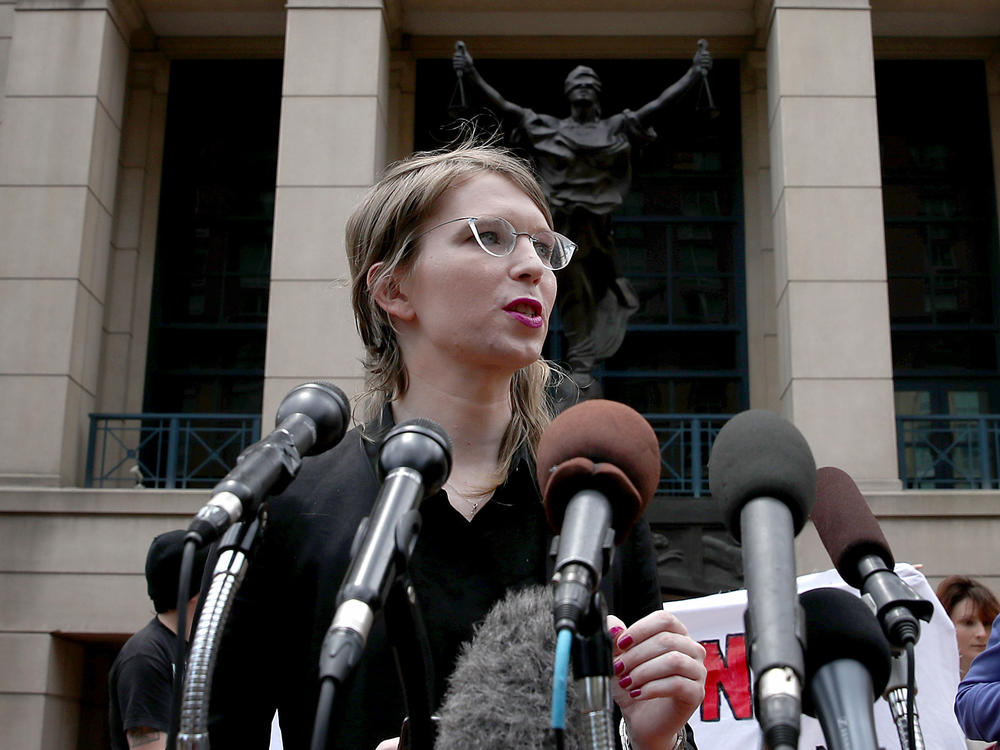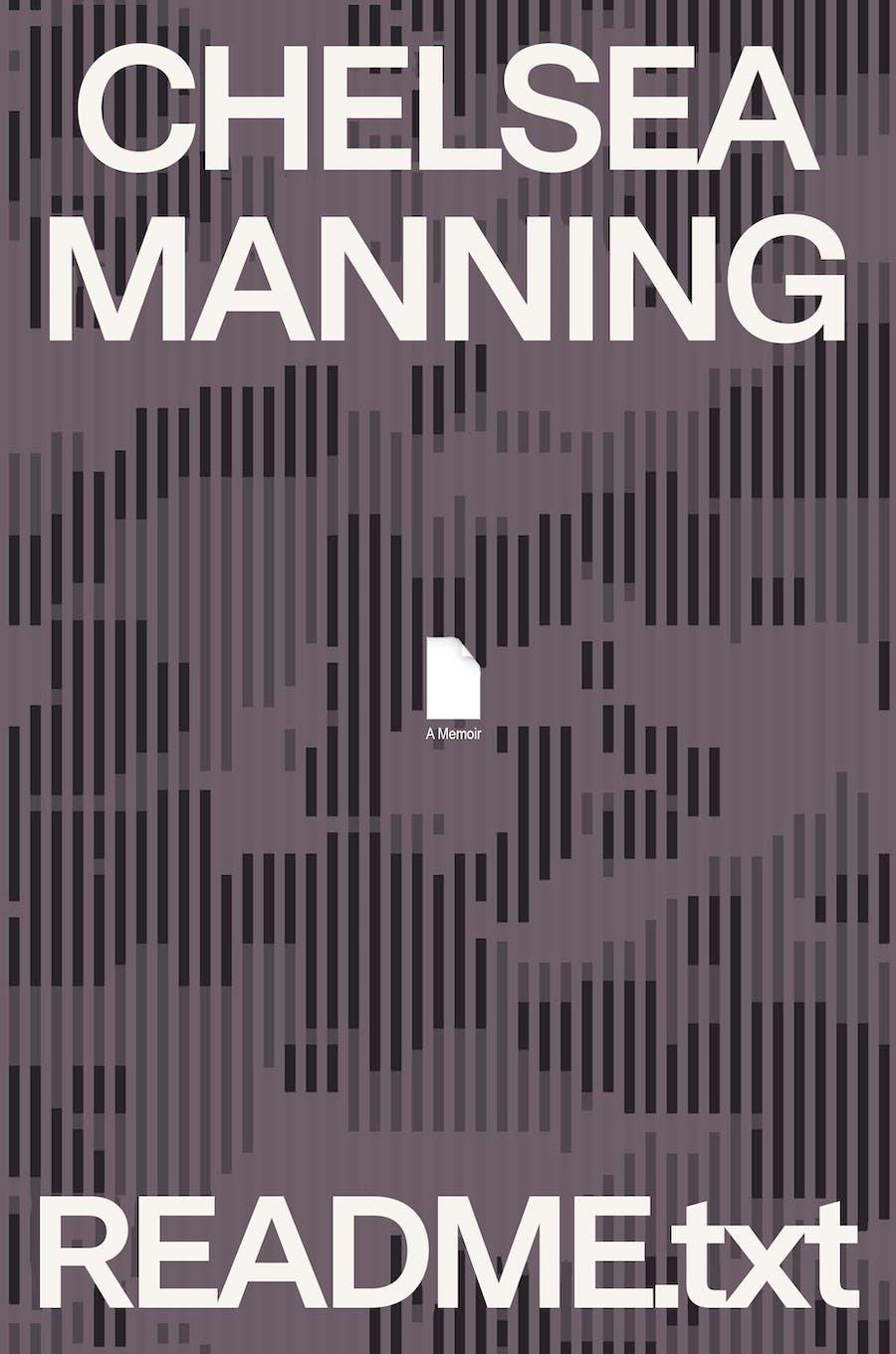Section Branding
Header Content
Chelsea Manning shared secrets with WikiLeaks. Now she's telling her own story
Primary Content
In 2010, while working in Iraq, army intelligence analyst Chelsea Manning provided hundreds of thousands of military and diplomatic records about the wars in Iraq and Afghanistan to WikiLeaks in what's regarded as the largest leak of classified records in U.S. history. To some, Manning is a heroic whistleblower; others, including the U.S. military, consider her a traitor.
Manning says that when she joined the military, she was committed to the Army's mission. But she became disillusioned while serving in Iraq, and regards her decision to leak classified documents as a matter of principle.
"What was bothering me was I [had] years of training and years of believing in something and then hitting the ground and then seeing it and feeling completely unprepared for how different [it was]," Manning says. "I wanted that discrepancy to be addressed somehow."
The leaked documents included a 2007 video in which a U.S. military crew aboard an Army Apache helicopter is shown shooting at Iraqi civilians and a Reuters journalist, after allegedly mistaking them for insurgents.
Manning expected to lose her job and maybe her career because of the leaks. Instead, in 2013, she was sentenced to 35 years in prison in a military court-martial — a sentence President Obama later commuted to about seven years. She was imprisoned again in 2019 on a civil contempt charge for refusing to testify in a grand jury investigation of WikiLeaks, but was released the following year.
Manning chronicles her difficult childhood, her long struggle with gender dysphoria, her entry into the Army and the events that landed her in prison in the memoir, README.txt. She sees the book as a way to assume control over her own story.
"I really came to want to write my version of events, write my story, tell things from my perspective, because I think it's kind of gotten lost in a lot of people projecting their ideals or their fears or their anxieties onto me or whatever it is, whereas I'm just kind of me," she says.
Interview highlights
On questioning her gender identity from an early age
I always figured that I was trans. I didn't have the language to describe my experience. I certainly knew something was different about me. In a very strict gender construct that exists in a place like central Oklahoma in the 1990s, there really wasn't an alternative. But I always knew that there was something different about me. My family noticed it too. It was just a very marked difference about me and my personality and my interests that was something that made me stand out. ...
[Gender dysphoria] is very similar to having a toothache that doesn't go away. If you don't do anything about it, if you don't go see a dentist, it just gets worse and worse and worse.
On her job as an analyst in Iraq
My job essentially ... was to do something called "predictive analysis." And one of the most troubling things that I encountered was this notion that it wasn't just the enemy that was predictable. Our actions, if you fed the data into the machine, you could predict our behavior. And then the reaction, the secondary reaction, the second and third order effects of that, and it painted this picture of a feedback loop where it was pretty clear that our reactions to the actions were causing things to get progressively worse. So we would just be spinning our wheels more and more, like if you're stuck in a ditch and you run the engine and you try to go faster, but you end up digging deeper. That was what was happening. And I kept seeing this again and again. And it was very clear that the approaches of counterinsurgency warfare were extremely self-destructive.
On being kept in solitary confinement in a cage in Kuwait for 59 days in 2010
It was a metal mesh box, a stainless steel container in a tent with very little lighting. There were two air conditioners, one was always broken. I remember very distinctly that there was this little sign inside of it that said, "built in Fort Wayne, Indiana." I'll never forget that. It was the only thing I could see every day.
I deteriorated very quickly. I don't actually remember a whole lot. I definitely don't remember a full 59 days. It's very vague. It's very fuzzy. I just remember it being hot, being sweaty, being very confused and really start[ing] to feel like I had lost touch with the rest of the world and that I had truly been forgotten about. At different points in that time period, I remember having the feeling like, "I am dead. I have already died."
On her frustrations with the plea agreement process
One of the most frustrating things of the plea agreement process was that they essentially wanted me to perjure myself. So the government kept on trying to get me to plead to things that I didn't do. Or more specifically, things that never happened. They wanted me to add these things that they call a "stipulation of facts," which is essentially a document that says that both parties agree that these are factual, that these were facts, and they wanted me to lie. And I just couldn't do that. I obviously did the disclosures and I wanted to take responsibility. And we wanted to narrow the scope of the damage, because I definitely never imagined I'd be facing life without parole as a possibility, and trying to negotiate with them is very difficult because they just would not give up on trying to get me to perjure myself.
On so much of the court-martial being closed to the media
The government wanted the entire court-martial to be behind closed doors. They repeatedly argued that this needed to be an entirely secret court-martial. ... It was always funny because the things that ended up being brought up in court were always favorable to the government. And all of the things that were favorable to the defense were in closed court-martial. "You're only getting one side of a story here," essentially is how I felt. And yeah, I think that the world would greatly benefit from having access to the closed testimony. That's my opinion.
On her attorney urging her to read a statement apologizing for the damage she had done
I had wanted to write my own statement, which was a little bit more defiant because our entire argument was that we hadn't caused damage, which I feel was borne out in the evidence and in the testimony presented. It was a very strange thing. But my lawyers kept on reassuring me and they kept on saying, "Oh, well, this is pro forma. This is how it's supposed to be." It was a very strange part of the process because that was like the one point in which my lawyers and I had a very strong disagreement about the presentation of this. They told me that the judge would view me very harshly if I didn't go through this process and that it would risk me getting a longer sentence. And I didn't necessarily care all that much about the length of the sentence at that point, since it didn't seem to matter all that much. So it was a very uncomfortable and very frustrating part of the court-martial process.
I think [the statement] hurt our court-martial. I think it wasn't beneficial to us because it wasn't very human. It wasn't very passionate. It wasn't the way I felt.
Sam Briger and Seth Kelley produced and edited this interview for broadcast. Bridget Bentz, Molly Seavy-Nesper and Maureen Pao adapted it for the web.
Copyright 2022 Fresh Air. To see more, visit Fresh Air.


